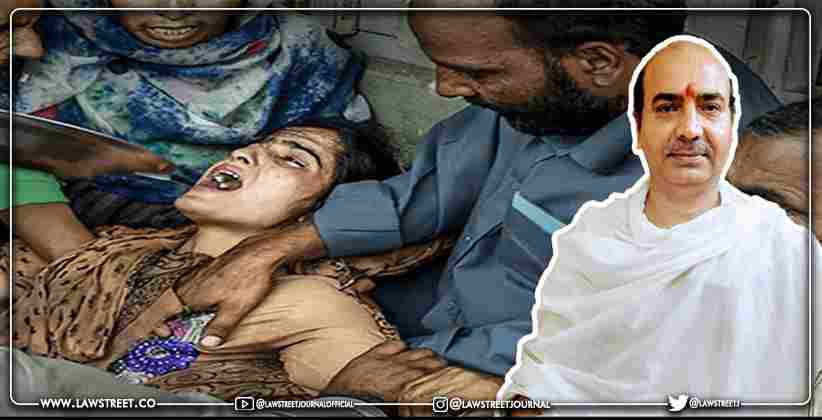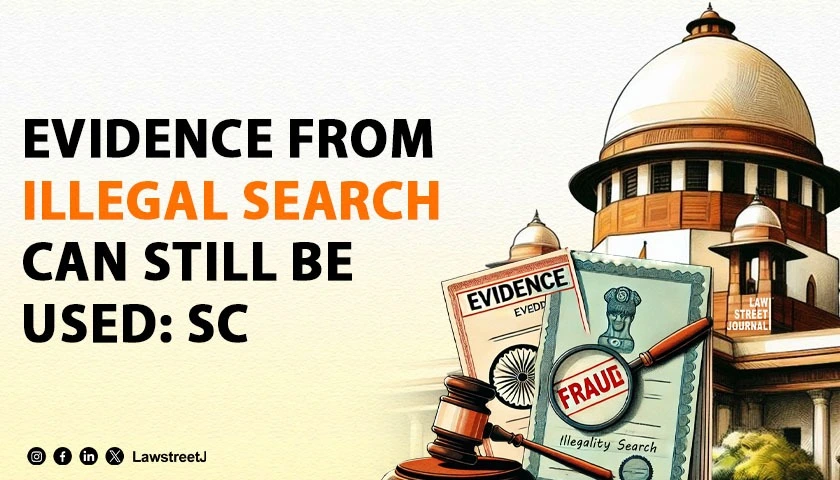The present century is considered an age of technology and development. With the advancement of science, there have been radical developments, globally, in the fields of Medicine, Space, Communication, Agriculture, etc. Information and knowledge, today, are just a click away. However, despite the indispensable role of scientific thinking in the modernization and progress of a nation, unfortunately, even in the present century, our society is plagued with the evil of superstition and black magic.
In fact, for a large part of our countrys population witchcraft, myths, legends, and several other forms of superstition are a way of life. Pertinently, such credulous beliefs are so ingrained in the thought process of most of our countrymen that they are not only stringently followed, rather, passed on to the subsequent generations as heritage.
Such irrational beliefs not only poison the minds of individuals but also compel them to commit several unspeakable offenses. Though certain superstitious practices carried out in the name of faith, such as the hanging of lemon and chilis at the entrance of homes or shops, avoiding black cats, removing the evil eye, etc., may not necessarily result in grave physical inconvenience or harm, however, practices of witchcraft, black magic, exorcism, etc., have often resulted in instances of murders and deaths.
Unfortunately, many these manifestations result due to irrational thought processes, lack of pragmatic thinking, and in several cases, religion, or religious thought processes. The situation becomes even more disconcerting when the gullibility of the innocent is preyed upon and exploited by their proponents and perpetrators to fulfill their malicious designs. It is often observed that people resort to black magic and magic remedies for curing diseases and other problems of life and in the process, are duped of money, health, and time.
Superstition and black magic-related crimes violate fundamental rights guaranteed under Articles 14, 12, and 21 of the Indian Constitution. Such acts also violate several provisions of various international legislations to which India is a signatory, such as the Universal Declaration of Human Rights, 1948, the International Covenant on Civil and Political Rights, 1966, and the Convention on Elimination of All Forms of Discrimination against Women 1979.
Despite constitutionally guaranteed fundamental rights and provisions in international legislations, the reality on the ground remains starkly different. A primary reason for this is the lacunae that exist in the India Penal Code (IPC). For instance, the IPC only takes cognizance of human sacrifice after a murder is committed, and the physical torture that alleged witched are subjected to is categorized as merely simple hurt. The accompanying mental trauma is completely ignored. Victims. Therefore, find it hard to get justice and often withdraw their complaint due to societal pressure, and the perpetrators are let off the hook.
There are several laws in India containing provisions to deal with incidents of fraud, deception, bodily injuries, etc. However, besides certain laws enacted by States (Bihar, Chhattisgarh, Jharkhand, Odisha, Rajasthan, Assam, Maharashtra, and Karnataka) to deal with the issue of superstition, to date, no specific and comprehensive Central enactment dealing with superstition exists.
Today, the intimidation and exploitation of the most vulnerable segments of society through black magic and superstition continues in the form of religious conversions. Several unethical predatory strategies are being used. One method is material enticement in which humanitarian aid or economic, education, medical or social assistance is offered on the condition that the person converts. Another is the denigration of the persons religion to make a new religion appear superior. A third unethical, predatory method is the promotion of bigotry i.e., knowingly, and intentionally promoting religious hatred and violence. Predatory proselytization tears apart the fabric of communities where it occurs and leads to the annihilation of cultures.
Highlighting these issues, Supreme Court Advocate Ashwani Upadhyay had filed a Public Interest Litigation in the Supreme Court seeking directions to be issued to the Centre and States to control black magic, superstition, and religious conversion by intimidating, threatening, and deceivingly luring through gifts and monetary benefits.
Mr. Upadhyay argued that religious conversions by carrot and stick and by hook or crook not only offend Articles 14, 21, and 25 of the Constitution but are also against the principles of secularism, which is an integral part of the basic structure of the Constitution. He stated that the Centre and States have failed to control the menace of black magic, superstition, and deceitful religious conversions, though it is their duty under Article 51A of the Constitution.
Incidents are reported every week throughout the country where religious conversion is done by intimidating, threatening, deceivingly luring through gifts and monetary benefits and by using black magic, superstition, miracles, and hypocrisy but Centre has not taken appropriate steps to stop these menaces of society. It is necessary to state that under Article 51A, it is the duty of the Centre to abide by the Constitution and respect its ideals and institutions, uphold and protect unity and integrity, promote harmony and spirit of brotherhood, renounce the practices derogatory to the dignity of women, value and preserve the rich heritage of our composite culture, develop scientific temper, humanism & spirit of inquiry and reform, and strive towards excellence in all individual & collective activities., the petition stated.
The petition cited several incidents of forced conversion and stated that such incidents continue to rise because the Government has no persisting laws controlling the mal practices under the name of religious freedom.
It is further stated that the situation is alarming as many individuals and organizations are carrying mass conversions of SC-STs in rural areas. The mass religious conversion of socially and economically underprivileged people, particularly those belonging to the SC-ST is on a steep rise for the last two decades. These organizations operate very smoothly targeting the socially and economically underprivileged sections particularly belonging to the SC-ST community., the petition pointed out.
An incident cited in the petition revealed that a boy from a minority community had befriended a scheduled caste girl posing as a Hindu and when he finally revealed his identity to the girl, he forced the girl to convert so that they could get married. Another incident revealed that in Hyderabad, the family of a watchman fell prey to the practice of conditional help/ proselytism. When their younger daughter was ill, they got medical assistance from a local church. Unfortunately, the help from this church came with conditions attached, and they were asked to convert to Christianity. Not having other means to obtain treatment for their daughter, they complied.
Mr. Upadhyay urged the Centre to control the forceful and deceitful conversion of the underprivileged by implementing a law with a minimum imprisonment of 3 years that may extend up to 10 years and the implementation of a hefty fine. He also suggested that the Centre may empower the National Human Rights Commission to deal with the affairs of religious groups and keep a check by carrying out an in-depth analysis of religious discrimination among them.
In Sarla Mudgal v. Union of India, the Supreme Court had suggested the commission of a committee to check the abuse of religion wherein it had observed The Government may also consider the feasibility of appointing a committee to enact a Conversion of Religion Act, immediately, to check the abuse of religion by any person. The law may provide that every citizen who changes his religion cannot marry another wife unless he divorces his first wife. The provision should be made applicable to every person whether he is a Hindu or a Muslim or a Christian or a Sikh or a Jain or a Buddhist. Provisions may be made for maintenance and succession etc. also to avoid a clash of interest after death. This would go a long way to solve the problem and pave the way for a unified civil code.
The PIL filed also prayed for the constitution of a committee to enact a Conversion of Religion Act to check the abuse of religion in the spirit of the direction in the Sarla Mudgal case.
Mr. Upadhyay stated that population explosion and religious conversion by the carrot and the stick is a national problem and hence Centre must enact a strong and effective population control law and anti-conversion law on top priority.
India is a Socialist, Secular, Democratic, Republic having a vast majority of followers of Hinduism, Islam, Christianity, and other faiths. Every individual is free to profess any religion of his choice. Article 25 of the Constitution secures religious freedom that all persons are equally entitled to freedom of conscience and the right to freely profess, practice, and propagate religion subject to public order, morality, and health. Therefore, religious conversion by using miracles, superstition, black magic, and hypocrisy is not protected under Article 25. Due to the inaction of the Centre and the States many individuals, NGOs, and institutions are involved in the conversion of poor people to other religions by intimidating, threatening, deceivingly luring through gifts and monetary benefits.
Eight states across India have enacted anti-conversion laws namely Orissa (1967), Madhya Pradesh (1968), Arunachal Pradesh (1978), Chhattisgarh (2000), Gujrat (2003), Himachal Pradesh (2006), Jharkhand (2017), and Uttarakhand (2018). However, the State Laws on conversion have failed to serve the purpose hence, a nationalized law on conversion needs to be passed for practical enforceability. State anti-conversion laws do not narrowly define fraud, coercion, and inducement. Therefore, there is a dire need for an anti-conversion law on a national level.








